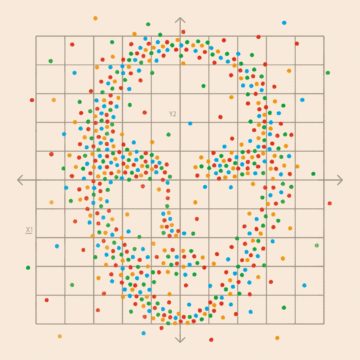Rivka Galchen in The New Yorker:
 While living in an internment camp in Vichy France, Alexander Grothendieck was tutored in mathematics by another prisoner, a girl named Maria. Maria taught Grothendieck, who was twelve, the definition of a circle: all the points that are equidistant from a given point. The definition impressed him with “its simplicity and clarity,” he wrote years later. The property of perfect rotundity had until then appeared to him to be “mysterious beyond words.”
While living in an internment camp in Vichy France, Alexander Grothendieck was tutored in mathematics by another prisoner, a girl named Maria. Maria taught Grothendieck, who was twelve, the definition of a circle: all the points that are equidistant from a given point. The definition impressed him with “its simplicity and clarity,” he wrote years later. The property of perfect rotundity had until then appeared to him to be “mysterious beyond words.”
Grothendieck became a revered mathematician. His work involved finding the right vantage point—from there, solutions to problems would follow easily. He rewrote definitions, even of things as basic as a point; his reframings uncovered connections between seemingly unrelated realms of math. He spoke of his mathematical work as the building of houses, contrasting it with that of mathematicians who make improvements on an inherited house or construct a piece of furniture. Colin McLarty, a logician and philosopher of math at Case Western Reserve, told me, “Lots of people today live in Grothendieck’s house, unaware that it’s Grothendieck’s house.” The M.I.T. mathematician Michael Artin, who worked with Grothendieck in the early sixties, laughed when I asked him about Grothendieck’s contributions. “Well, everything changed in the field,” he said. “He came, and it was like night and day. It was a revolution.”
When Grothendieck was forty-two years old, he abruptly left the field of mathematics.
More here.
